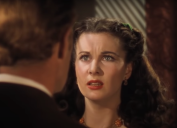8 Movies So Controversial That They Faced Audience Boycotts
These films faced serious backlash, whether for how they portrayed history or who was behind them.
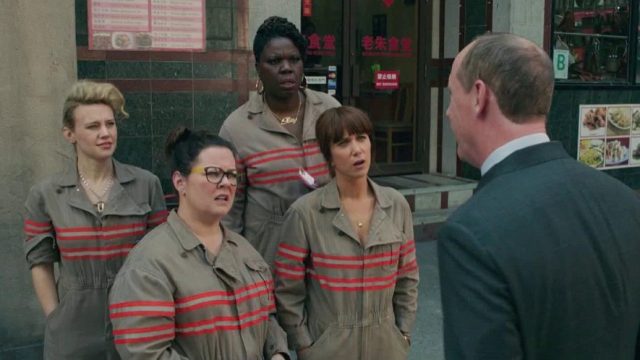
Since the beginning of Hollywood and the invention of movies, there have been movie boycotts. In 1906, The Women's Christian Temperance Union (WCTU) began staging boycotts of silent movies, claiming they glorified sex and violence. Yet, as common as the practice is, the reality is that most boycotts of media fail, especially in the modern world, as the publicity around a film's boycott usually leads people to see what all the fuss is about. This is known today as "the Streisand effect."
Whether it be Twitter users calling fans to shun Star Wars: Episode VII – The Force Awakens, Reddit trolls trying to convince Marvel fans to snub Captain Marvel, or Christian activists refusing to see the Harry Potter movies because they "promote witchcraft," these calls mostly seem like a lot of sound and fury signifying nothing. However, sometimes public outrage does has an effect. After Will Smith slapped Chris Rock at the Oscars in 2022, some potential audience members refused to see his movie Emancipation and then claimed success for its box office failure. How much the promised shunning of the film contributed to Apple TV+'s decision to only give the historical drama a one-week theatrical window before debuting it on streaming is anyone's guess, however.
What these outcries can, if not tank a film, is to change the narrative around it. Read on for eight movies that became the target of boycotts, why they angered people, and how they fared.
READ THIS NEXT: 7 Oscar-Winning Movies That Are Offensive by Today's Standards.
1
The Da Vinci Code (2006)
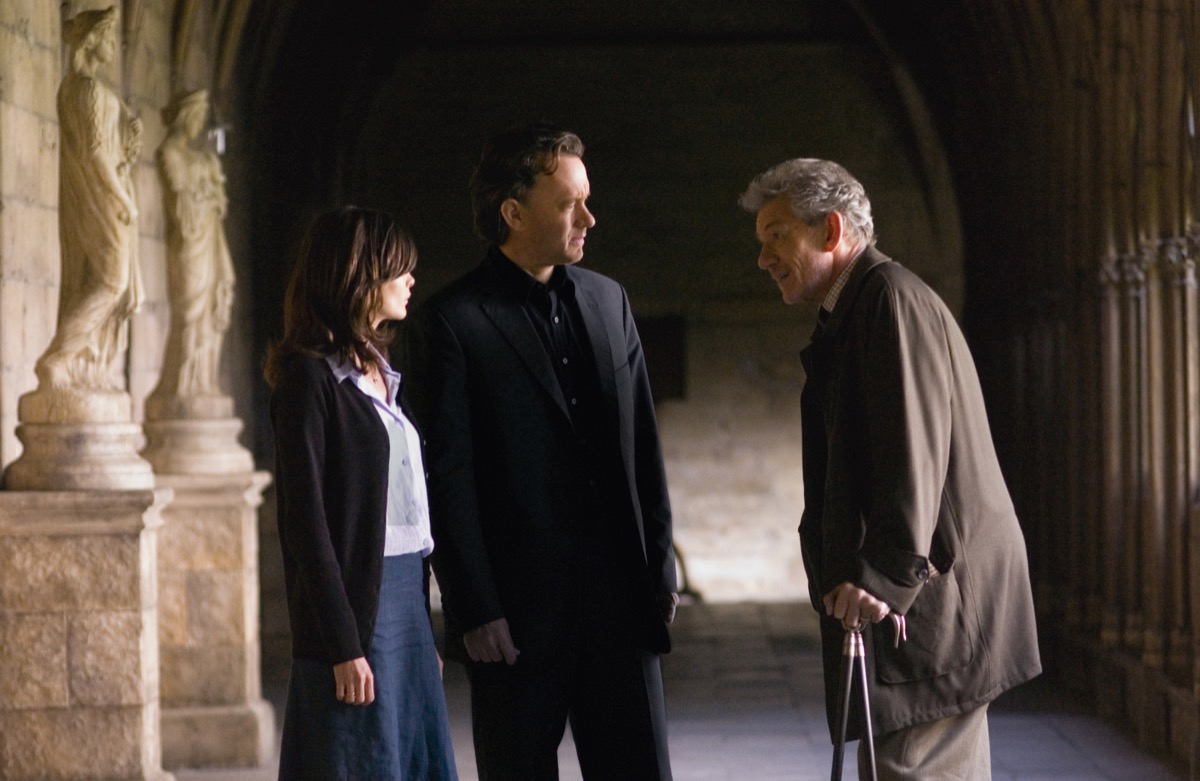
The Da Vinci Code was a worldwide bestseller for author Dan Brown when it was picked up for adaptation with Ron Howard directing and Tom Hanks leading a starry cast that also includes Ian McKellen, Audrey Tautou, Alfred Molina, Jean Reno, and Paul Bettany. The novel was already controversial, especially among Catholic groups, and the film proved to be no better received. Vatican official Monsignor Angelo Amato called for a boycott over the thriller's plot—which includes the Catholic Church being behind a 2000-year-old cover-up of Jesus Christ and Mary Magdalene's marriage and offspring—calling it "slanderous."
As with the Catholic Church's complaints about the book, the boycott had little negative impact on the film's release. The Da Vinci Code wound up taking in $760 million worldwide in box office receipts.
2
Ghostbusters (2016)
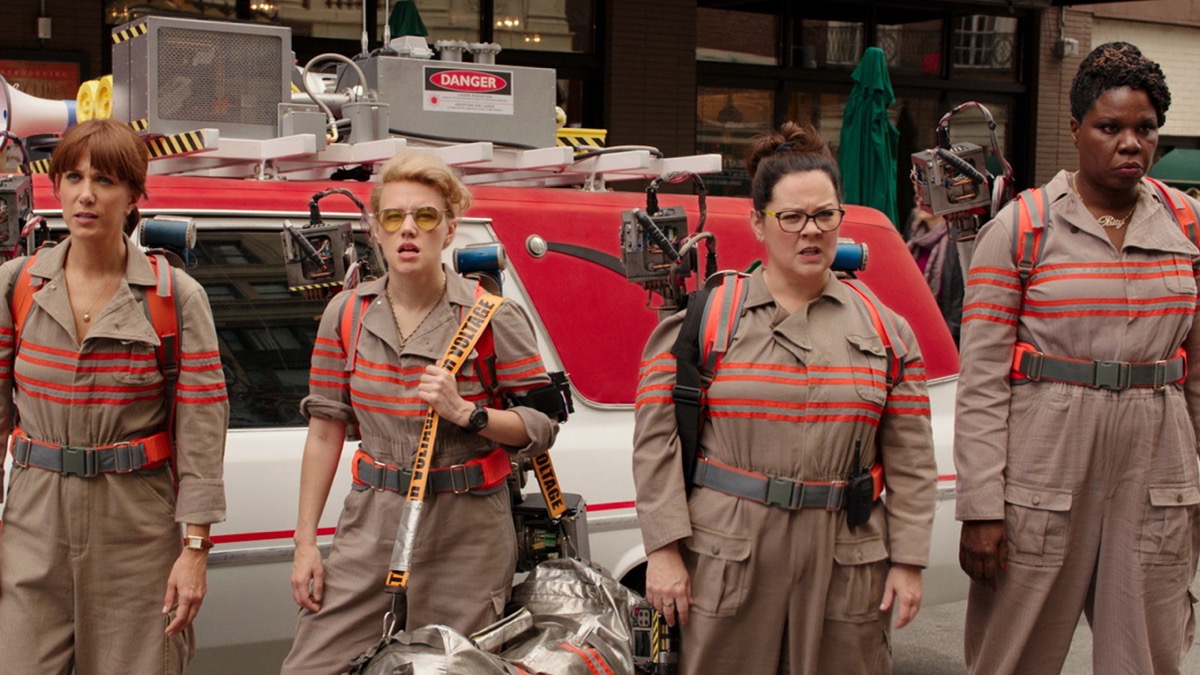
Theaters and streaming services have been filled with remakes of older films and TV series that feature more diverse casts for nearly a decade. But none proved quite so controversial as 2016's Ghostbusters, which reimagines the 1984 comedy with four women (Kristen Wiig, Kate McKinnon, Melissa McCarthy, and Leslie Jones) teaming up to be the paranormal professionals you're gonna call. Hardcore male fans of the original film (and its 1989 sequel) called for a boycott, protesting the concept of a gender-swapped remake as it offended their sensibilities that women might also fight ghosts.
The openly misogynistic protest was picked up by Men's Rights Activists and became the dominant narrative around the film's release. Those activists claimed victory when opening weekend attendance was merely average. However, the film ended up making $229 million worldwide—about $70 million less than the original, but more than Ghostbusters II and more than 2021's Ghostbusters: After Life, which played directly into the desires of the MRA crowd by erasing the all-women version from the franchise's timeline.
3
The Last Temptation of Christ (1988)
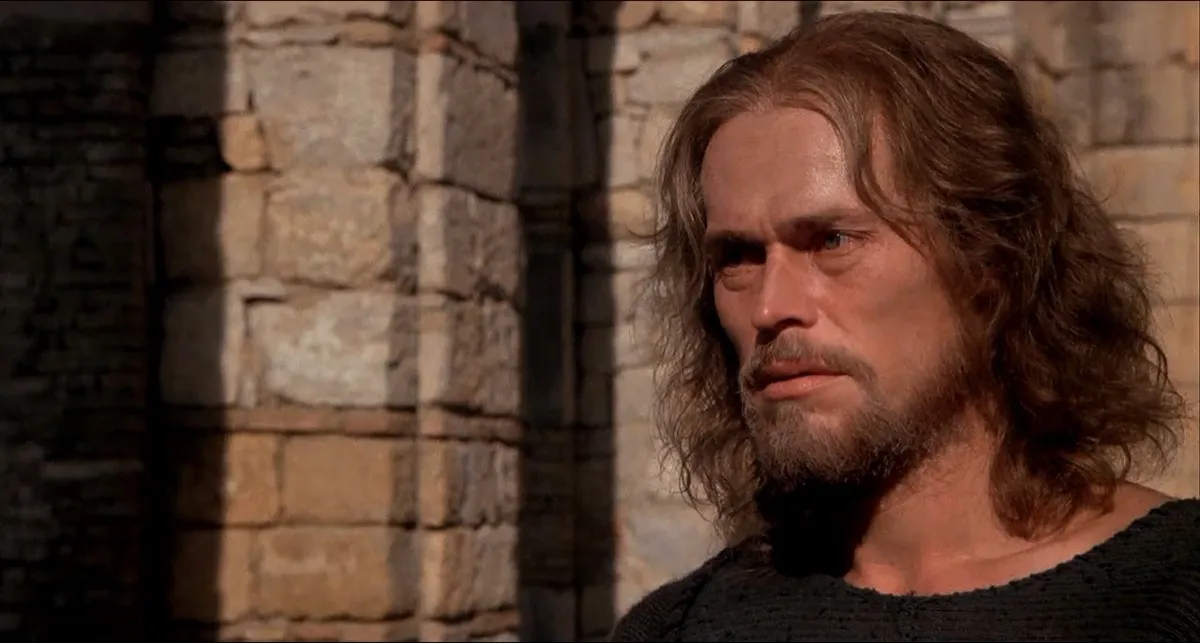
Martin Scorsese had been trying since the '70s to get an adaptation of the 1955 novel The Last Temptation of Christ off the ground, but it wasn't until the mid-'80s, with Taxi Driver, Raging Bull, and The Color of Money all on his resume, that the industry decided to go for it. Production was halted just before filming began after a letter-writing campaign by fundamentalists claimed (without evidence) that the movie's version of Jesus Christ would be gay. A few years later, Scorsese returned to the film; only this time it was a body of Southern Protestant ministers calling for a boycott, calling the depiction of Jesus (as played by Willem Dafoe) in the film (which they had not screened) "lust-filled" and "deranged." The hysteria reached a tipping point when an Integralist Catholic group attempted to blow up Paris' Saint Michel Cinema for showing the film.
Despite it inspiring a terrorist attack, critics hailed the film as one of the great movies of the 20th century. Roger Ebert wrote at the time that it "paid Christ the compliment of taking him and his message seriously" and that it "does not turn him into a garish, emasculated image from a religious postcard." However, it was hardly a box office smash, taking in only $8 million globally.
4
The Woman King (2022)
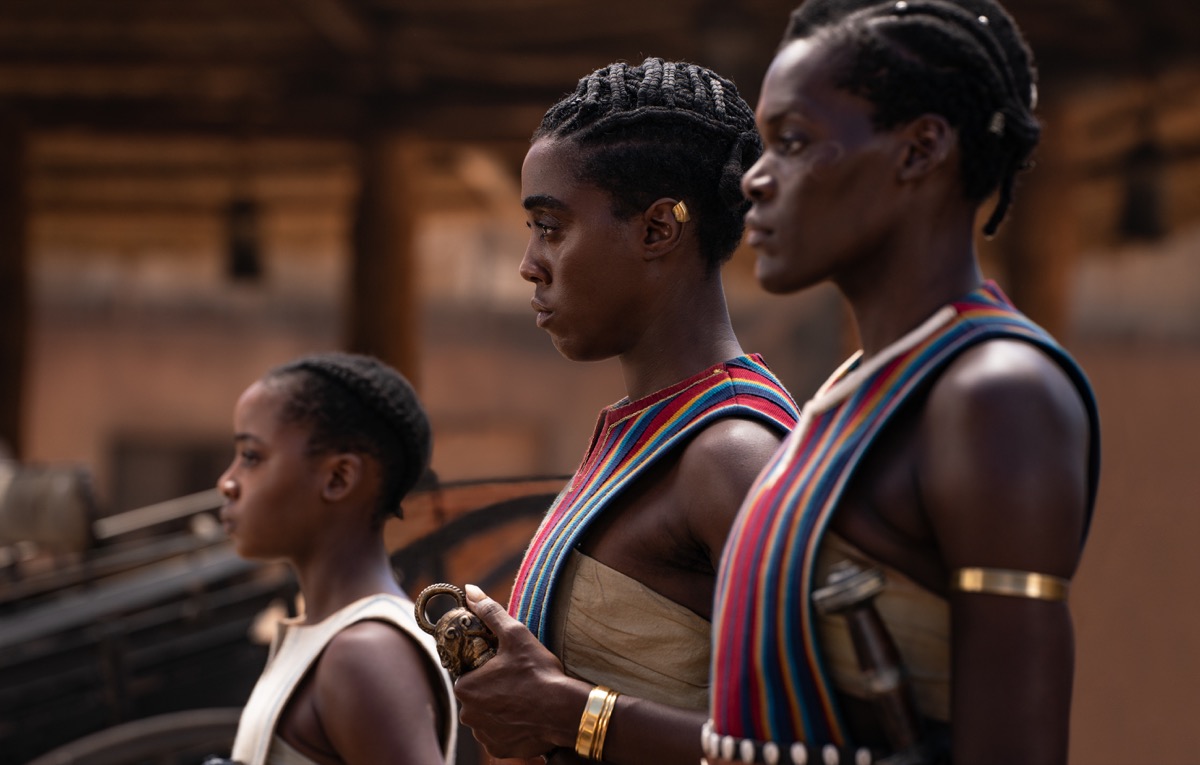
The Woman King is a period film based on the Agojie, a real, all-woman warrior unit that protected the West African kingdom of Dahomey amid the slave trade. Set in 1823, the film stars Viola Davis as a general who trains the next generation of protectors, including Lashana Lynch, Sheila Atim, and Thuso Mbedu. However, Black activists called for a boycott, protesting that the fictionalized history presented wasn't accurate and that the story whitewashed the reality of slavery.
Despite the protests, the film was given high marks by critics, with the BBC calling it "a splashy popcorn movie with a social conscience." It made $97 million at a box office, a more-than-respectable amount for a film based on an original idea that debuted just as audiences were returning to theaters post-pandemic.
For more movie trivia sent right to your inbox, sign up for our daily newsletter.
5
Tropic Thunder (2008)
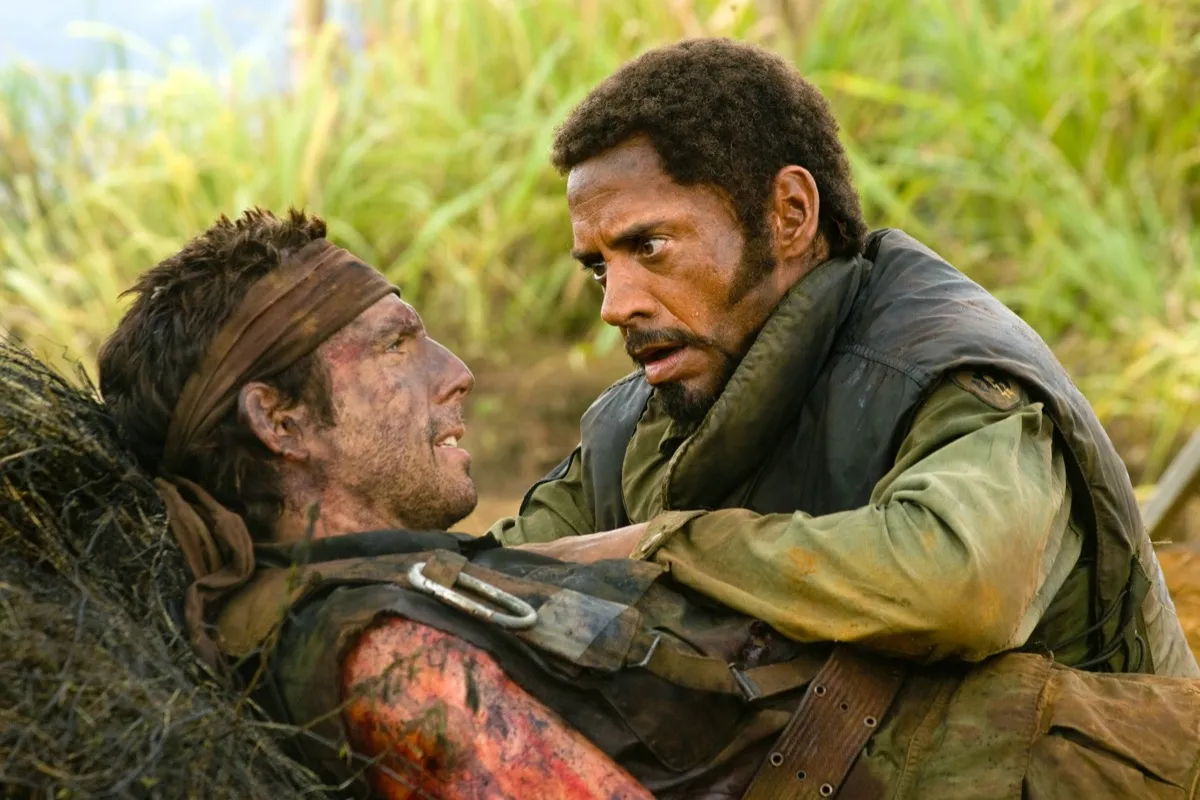
Tropic Thunder is a Hollywood in-joke comedy about the disastrous production of a fictional movie about the Vietnam War. It's one-part parody of war films like Apocalypse Now, one-part satire of Hollywood, and one-part dig at Method actors who claim they must "become their character" in order to give a performance. Robert Downey Jr. plays Kirk Lazarus, a movie star who's had "pigmentation alteration" surgery to play a Black character. However, it wasn't the use of blackface that caused the controversy that plagued the movie at the time, but Kirk's use of a slur in telling his fellow actors never to go full-Method to play a mentally disabled character. A coalition of disability groups organized a boycott, stating that the joke came across as "ridicule" of the disabled population.
Some critics agreed with those who found Tropic Thunder racist and ableist, with RogerEbert.com critic Glenn Kenny later referring to it as "entirely smug and hateful." Despite the complaints, the film did spectacularly well, making $195 million and landing Downey Jr. an Oscar nomination for the controversial part.
6
Pocahontas (1995)
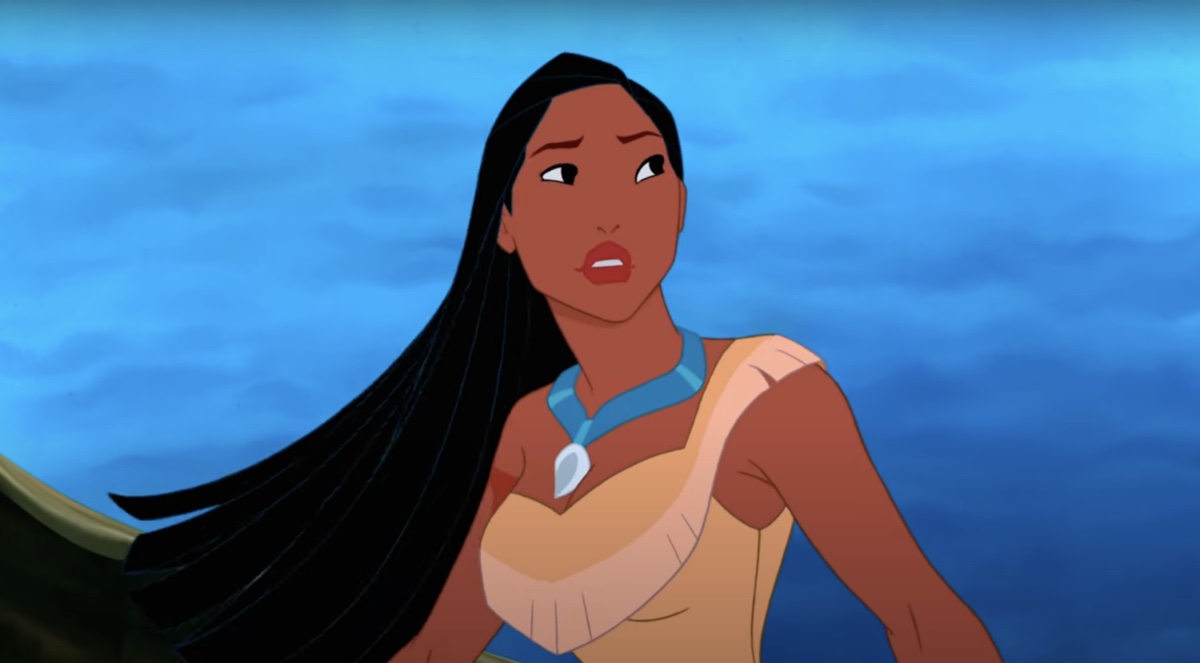
Coming on the heels of a string of hit animated musicals—The Little Mermaid, Beauty and the Beast, Aladdin, and The Lion King—Disney adapted the life of Pocahontas with this family film. In this early attempt to diversify its Disney Princess catalog, the studio invents a love story between the indigenous heroine and Englishman John Smith. (That the making of it coincided with Disney's attempt at building an "American History" theme park in Virginia was probably not a coincidence.) At the time, Native American leaders called for audiences to boycott Pocahontas over the film's historical inaccuracy and for turning its titular character, who was a 10-year-old child in reality, into a "sex symbol."
Protests kept Disney from developing that theme park, but the complaints about Pocahontas didn't deter filmgoers. In theaters, it earned $346 million, and the song "Colors of the Wind" won an Oscar, a Golden Globe, and a Grammy.
7
Ender's Game (2013)
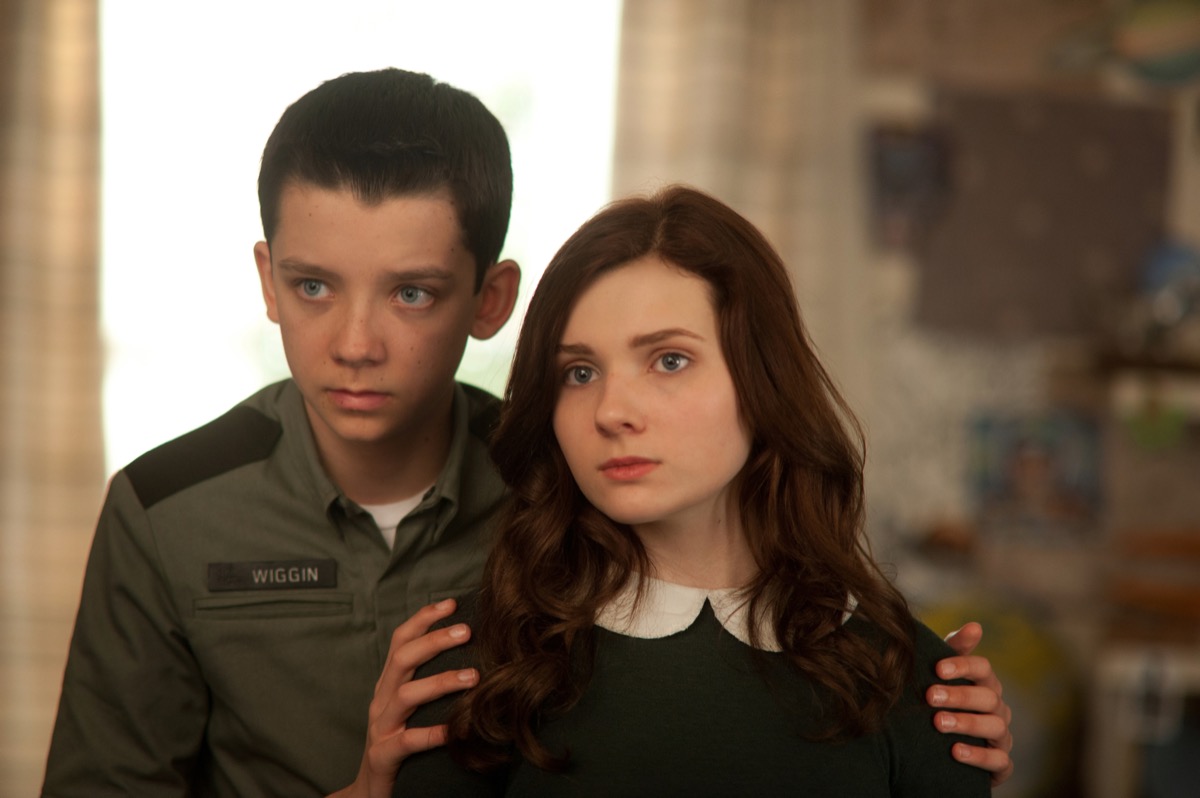
The success of HBO's Game of Thrones jumpstarted a sci-fi/fantasy craze in TV and movies, with studios racing to adapt novels that had reached "classic" status. Such was the case with the 1985 Orson Scott Card Ender's Game, which was turned into a feature film starring future Sex Education star Asa Butterfield as Andrew "Ender" Wiggin. However, Card by that point was better known for his anti-marriage equality stance than his work, and LGBTQ+ groups spoke out, asking audiences not to support a project that would financially benefit someone who had given money to anti-gay causes.
Ender's Game didn't do so well with critics, either. (It ranks a "fresh" rating on Rotten Tomatoes by the skin of its teeth at 62 percent.) But neither that nor the boycott had much effect on the box office, with the film drawing in over $125 million. However, that ultimately wasn't enough to move forward with the planned sequel.
8
Music (2021)
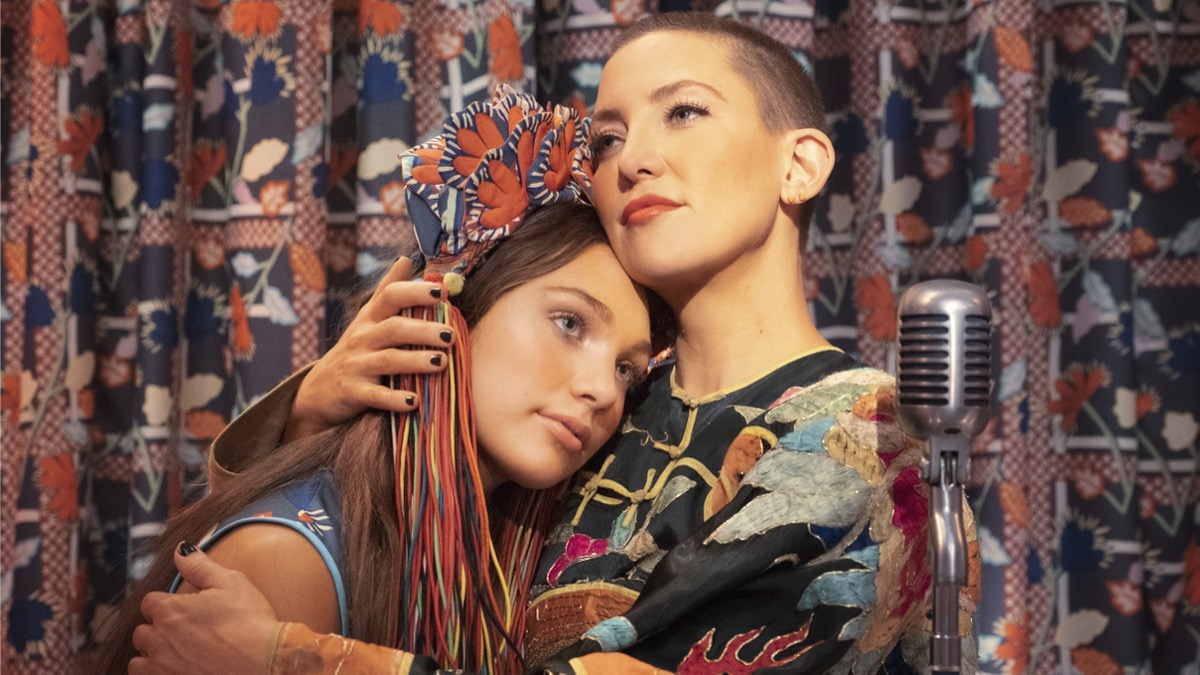
Sia may be a hitmaker with multiple Grammy nominations, but her first attempt at branching out into directing feature films was a bust. Despite a cast including Kate Hudson, Leslie Odom Jr., and frequent collaborator Maddie Ziegler, her 2021 movie Music didn't do much more than stir up controversy. The autistic community spoke out after the first trailer dropped, protesting the casting of Ziegler (who is neurotypical) as the titular Music, who comes to be in the care of her half-sister, who's in recovery (Hudson). When the movie was released, the backlash continued, with detractors claiming that it plays into false, stereotypical depictions of people with autism spectrum disorder. It also didn't help that Sia herself shot off some defensive tweets to autistic activists.
Music had multiple issues beyond the boycott, including arriving in theaters in February 2021 before people began returning en masse to theaters. Even so, the numbers are still brutal, with the film barely making $645,000 in theaters.


